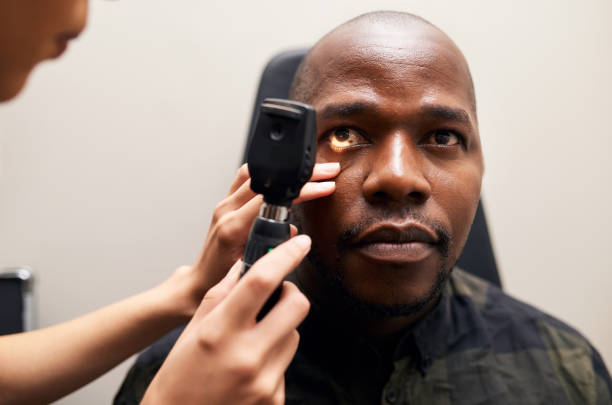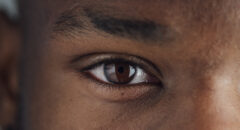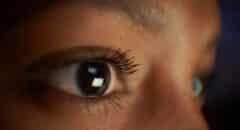
Diabetes is a chronic condition affecting millions of people worldwide, and it disproportionately impacts Black Americans. While most people are aware of diabetes’ impact on their overall health, fewer understand how it can silently harm their vision. Diabetic retinopathy—the most common eye disease associated with diabetes—is the leading cause of blindness in working-age adults.
The good news? Early detection through regular eye screenings can prevent up to 95 percent of vision loss caused by diabetic retinopathy. As Dr. Joseph M. Coney, MD, FACS, FASRS points out, “All of this is preventable as long as you get a properly timed, valid eye exam and get diagnosed and treated appropriately.”
This article will explain why eye screenings are crucial, how diabetic retinopathy develops, and what you can do to protect your vision.
RELATED: Diabetic Retinopathy vs. Diabetic Macular Edema: What’s the Difference?
What Is Diabetic Retinopathy?
Diabetic retinopathy occurs when high blood sugar damages the small blood vessels in the retina, the light-sensitive tissue at the back of the eye. Over time, these vessels can swell, leak, or become blocked, disrupting the retina’s ability to function.
Dr. Coney explains:
- “The high sugars over long periods of time, combined with the duration of diabetes, start to affect the blood vessels behind the eye.”
- “The leading cause of decreased vision in diabetes is diabetic macular edema [swelling in the retina], but as the disease progresses, patients can develop proliferative disease, where bleeding and scarring lead to severe vision problems.”
The condition typically progresses through four stages, from mild early damage to advanced proliferative diabetic retinopathy, where abnormal blood vessels grow and leak blood, potentially causing blindness.
RELATED: 6 Warning Signs of Diabetes Complications You’re Overlooking
Why Screenings Matter
One of the biggest challenges with diabetic retinopathy is its silent progression. In the early stages, there are no noticeable symptoms. “The problem,” Dr. Coney notes, “is that people don’t come in for diabetic screenings until it’s too late. By the time they see a doctor for blurred vision or floaters, the damage may already be done.”
Here are three key reasons why screenings are essential:
- Early Detection: Screening can catch retinopathy before symptoms appear, allowing for timely treatment.
- Prevention of Vision Loss: Effective treatments, like injections or laser therapy, work best when started early.
- Monitoring Disease Progression: Regular follow-ups allow doctors to prevent further damage and adjust treatments as needed.
The American Diabetes Association (ADA) recommends:
- Type 1 Diabetes: An eye exam within the first five years of diagnosis.
- Type 2 Diabetes: An eye exam at the time of diagnosis.
- Pregnant Women with Diabetes: An exam before conception and during the first trimester.
Unfortunately, about 50 percent of people with diabetes don’t follow these guidelines. This gap in care disproportionately affects underserved communities, especially Black Americans.
What Happens During a Screening?
An eye screening for diabetic retinopathy is quick, painless, and provides critical information about your eye health. Dr. Coney emphasizes the importance of a dilated eye exam, which allows doctors to examine the retina in detail:
- “During the exam, we look for signs of retinopathy—leaky blood vessels, swelling, or any abnormal growths.”
- Advanced imaging techniques, such as optical coherence tomography (OCT) or fluorescein angiography, may be used to get a more detailed view of the retina and the stage of the disease.
Screening is not just about diagnosis; it’s a critical step in creating a plan to protect your vision.
Treatment Options
If diabetic retinopathy is detected, timely treatment can prevent further damage and, in some cases, restore vision. Common treatments include:
- Injections: Anti-VEGF medications help reduce swelling and prevent abnormal blood vessel growth.
- Laser Therapy: Seals leaking blood vessels and reduces the risk of further damage.
- Surgery: For advanced cases, procedures like vitrectomy can remove blood or scar tissue from the eye.
However, Dr. Coney stresses that prevention is the best strategy.
“The most important part of managing diabetic eye disease is early detection. Once vision is lost, we can stabilize it, but we can’t always make it better. That’s why screenings are so crucial.”
A Call to Action for Black Communities
Diabetes and diabetic retinopathy disproportionately affect Black Americans, yet many individuals don’t receive timely eye screenings. Dr. Coney highlights the need for improved education and outreach:
“We haven’t done a good enough job of saying, ‘If you have diabetes, just go get your eyes checked.’ It’s that simple. If you come in for regular screenings, I can prevent you from going blind.”
He also notes systemic barriers, such as access to care and lack of awareness:
“People are often compliant with their medical doctors but don’t see an eye doctor until 10–15 years later. Why is this still happening in America?”
By raising awareness about the importance of diabetic eye screenings, we can empower communities to take control of their health.
RELATED: Diabetic Eye Disease: 4 Stages To Protect Your Eyes
How to Protect Your Vision
Taking care of your eyes starts with these steps:
- Control Your Blood Sugar: Maintaining stable blood sugar levels reduces the risk of retinopathy.
- Manage Blood Pressure and Cholesterol: These factors also play a role in eye health.
- Get Regular Eye Exams: Follow the ADA guidelines for screenings based on your diabetes type and duration.
- Know Your Family History: If diabetes or eye diseases run in your family, you may be at higher risk.
Conclusion
Diabetic retinopathy is a serious but preventable condition. As Dr. Coney puts it, “If you have diabetes, just go get your eyes checked.” Regular screenings, early diagnosis, and timely treatment can make all the difference in preserving your vision.
Your eyes are a window into your overall health. Don’t wait until symptoms appear—schedule a diabetic eye screening today and take the first step toward safeguarding your vision for years to come.
Talk to your doctor about scheduling a diabetic eye exam. If you’ve already been diagnosed with diabetic retinopathy, work with your healthcare team to create a treatment plan. Prevention starts with you.

Medically Reviewed By:
Joseph M. Coney, MD, FACS, FASRS
Dr. Coney received his Bachelor of Science in biology from the University of Illinois and his medical degree from Loyola Stritch School of Medicine. After completing his ophthalmology residency at University Hospitals/Case Western Reserve University, where he is now a Senior Clinical Instructor.









